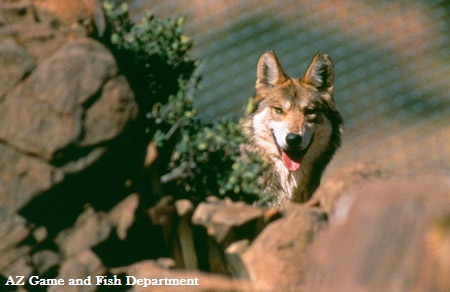30
Aug
Op Ed: The border wall endangers the future of humanity and nature

By Subhankar Banerjee / UNM Professor of Art and Ecology, Joseph Cook / UNM Professor of Biology, and Samuel Truett / UNM Associate Professor of History
On July 24, BioScience published a letter “Nature Divided, Scientists United: US—Mexico Border Wall Threatens Biodiversity and Binational Conservation” signed by more than 2,500 scientists from 43 countries. By devaluing conservation investment and science and bypassing environmental laws — like the Endangered Species Act and National Environmental Policy Act — the proposed expansion of the wall by the Trump administration will devastate wildlife by eliminating, degrading and fragmenting critical habitats, the letter highlights. This letter is the latest in a series of acts of resistance from scientists, scholars, environmental justice advocates and indigenous peoples living in the U.S.-Mexico borderland. All three of us live in this borderland and teach at the University of New Mexico (UNM). We have intimate knowledge of the ecological and human rights issues affected by the wall.
Last year, UNM hosted Decolonizing Nature, an international conference on environmental justice, resistance, resilience and revitalization. At stake was the entangled future of humanity and nature in North America. Nellie Jo David, a Tohono O’odham scholar-activist, spoke against visions of a border wall and the militarization of her homeland, which straddles the Arizona-Sonora border. “They are going to fight back — the animals, the plants, the earth,” she insisted. If we build a wall, “the earth would do its part in taking that wall down.”
Two months later, the American Society of Mammalogists adopted a resolution opposing the wall, noting negative impacts on at least 56 mammal species, including four of international conservation concern: Mexican wolves, jaguars, ocelots and desert bighorn sheep. Worldwide, more than 80 percent of wild mammal populations have been lost in the last century and 50 percent of all mammal species are projected to go extinct in the next century, largely due to human destruction and fragmentation of habitats. With nearly 700 miles of barriers already built, the proposed nearly 1,300 miles of additional border walls — built through one of the most biodiverse regions of the continent — will further cripple ecological connectivity and wellbeing, just as it will partition indigenous homelands, devastate communities and endanger binational cooperation.
The wall will also endanger families. Separating families at the border — just like partitioning indigenous homelands — is a basic human-rights issue. The well-being of America, moving forward, will be tied to the morality of our actions and our ability to imagine common cause with others. The United Nations high commissioner for human rights proclaimed child separation unconscionable. The next day, Trump withdrew from the United Nations Human Rights Council. We can and must do better than this, if we are to make America’s values matter to the world.
Borders divide, but they also connect. And in their most fundamental inter-relationships, animals and humans know no borders. We can take a telling example from another North American borderland. The range of the Porcupine River Caribou Herd and homelands of the indigenous Gwich’in people, who have relied on the caribou for millennia, overlap and straddle the Alaska (U.S.)-Yukon (Canada) border in the Arctic. Erecting a wall there is unthinkable, unconscionable.
Likewise, in the middle of a sixth mass species extinction, throwing up new walls in the U.S.-Mexico borderland makes little sense. We must continue to speak up for both our human and nonhuman relatives with whom we share this earth. We call on our government to do the right thing — to take an active role in taking that wall down and getting on with the challenges that face humanity. By working to take back those ecological, spiritual, political and cultural values that have historically connected people and nature across the U.S.-Mexico border, we might use America’s borderlands to envision a more resilient, more just and more humane planet.
This article was published in the Albuquerque Journal



